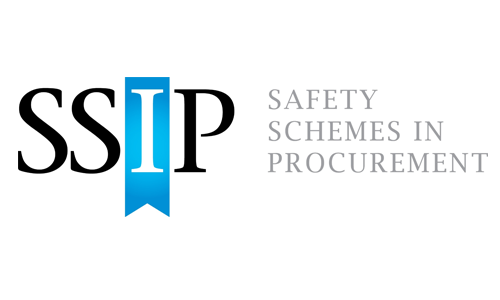Hydroblast recently had the pleasure of speaking with Eleanor Eaton, the chair for Safety Schemes in Procurement (SSIP). The conversation topic involved our newly acquired ISO 45001 certificate from URS, a member of the umbrella organisation. In a recent newsletter for the company, Eleanor stated:
“SSIP is now a leading player in health and safety pre-qualification, helping to ensure straightforward reduction of duplication and bureaucracy within the supply chain for both buyers and suppliers.”
“As managing director of a SME I am committed to reducing bureaucracy.”
Like many smaller contractor businesses, Hydroblast are finding that companies working for procurement agencies are increasingly reproducing a standard pre-qualification questionnaire, following the format of the PAS 91. Commissioned by the government, the PAS 91:2013 (Publicly Available Specification 91, Edition 2013) is the standard procurement for the construction industry. It has been designed to streamline bidding processes for large construction jobs through a standardised process. However, this one-size-fits-all format means that it has a large volume of pre-qualification requirements to achieve, making it an onerous and costly process for smaller contractors to complete.
The PAS 91 questionnaire is suitable for large construction jobs, such as finding a contractor to build several miles of motorways with the addition bridges. However, its relevance and necessity for smaller jobs, such as a two days’ worth of hydrodemolition, is questionable. The standard pre-qualification questionnaire takes valuable time away from smaller contractors, significantly increasing costs as their time is being spent on irrelevant compliance.
Hydroblast is passionate about health and safety and will always carry out the necessary precautions and measures with the utmost diligence. Not only this, we have the certifications to prove it. However, we firmly believe that the duplication of questionnaires is wasting the time of smaller businesses. Companies are having to pay for a number of health and safety schemes with similar content just to become fully compliant.
These reasons are why we’re so grateful to organisations such as Safety Schemes in Procurement who offer the SSIP accreditation. According to the SSIP website, this accreditation is “a membership or umbrella body for assessment schemes with the common aim of reducing both duplication and costs for both buyers and suppliers.” Put simply, this accreditation aims to reduce bureaucracy at both ends of the supply chain by allowing the cross recognition between schemes. This in turn minimises the time contractors spend on unnecessary and time-consuming paperwork, as by satisfying the criteria for one scheme such as URS, you will have satisfied the criteria for all other SSIP schemes.
To discuss this topic further or to learn more about Hydroblast’s standards of health and safety, please get in touch today. We would love to hear your views!

